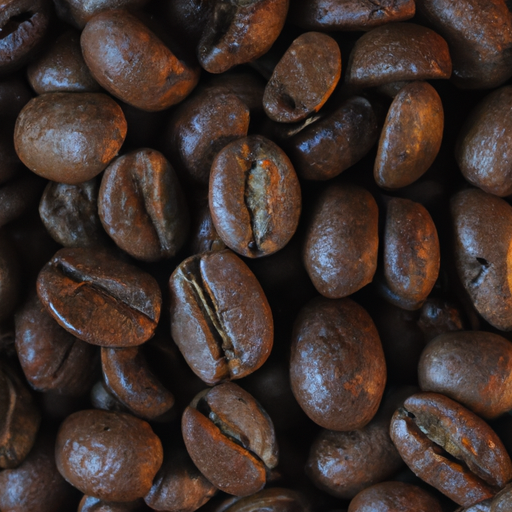Have you ever taken a sip of your favorite morning coffee and been greeted with an unexpected burst of bitterness? From that moment on, your otherwise cheerful morning routine takes a slightly disappointing turn. But fear not, for we have the answers you seek. In this article, we will explore the intriguing reasons behind why your coffee might be tasting bitter, uncovering subtle factors that can greatly impact the flavor of your beloved brew. So grab your mug and get ready to uncover the fascinating world of coffee bitterness.
Possible Causes of Bitter Coffee
If you’ve ever taken a sip of your morning coffee and been greeted with a bitter taste, you might find yourself wondering what went wrong. Bitterness in coffee can be caused by a variety of factors, all of which can have a significant impact on the flavor of your beloved brew.
Let’s dive into some of the possible causes of bitter coffee and explore how each factor can contribute to this undesirable taste.
Low-Quality Beans
One of the primary culprits behind bitter coffee is the use of low-quality beans. Inferior bean sources, inconsistent bean quality, and subpar processing techniques can all result in a less-than-stellar cup of joe. A lack of attention to detail during the cultivation and processing phases can lead to an overabundance of bitterness in the final product. Investing in high-quality beans that have been carefully sourced and processed can significantly improve the flavor of your coffee and reduce the chances of bitterness.
Over-Extraction
Over-extraction occurs when too much flavor is extracted from the coffee grounds, resulting in a bitter taste. Several factors can contribute to over-extraction, including a long brew time, a fine grind size, a high brew ratio, and agitation during brewing. It’s crucial to find the right balance in each of these areas to avoid over-extraction and maintain a smooth and enjoyable cup of coffee.
Brewing Temperature
Both water that is too hot and water that is not hot enough can contribute to a bitter coffee experience. If the water is too hot, it can lead to over-extraction and a burnt taste. On the other hand, if the water is not hot enough, it may result in under-extraction and a weak, bitter flavor. Finding the optimal brewing temperature for your coffee can help eliminate bitterness and enhance the overall taste.
Improper Coffee-to-Water Ratio
The coffee-to-water ratio plays a crucial role in determining the flavor of your brew. Using too much coffee or too little water can lead to a bitter taste. Too much coffee can result in over-extraction, while too little water can lead to under-extraction. Experimenting with different ratios and finding the right balance for your taste preferences can make a significant difference in the bitterness of your coffee.
Stale Coffee
Coffee is at its best when it’s fresh, but if it’s been sitting around for an extended period, it can start to lose its flavor and develop a bitter taste. Extended storage periods, improper storage containers, and exposure to oxygen and moisture can contribute to the degradation of coffee beans. To avoid bitterness, it’s essential to store your coffee in airtight containers in a cool, dark place and consume it within a few weeks of roasting.
Dirty Equipment
Clean equipment is vital for a great cup of coffee. Any residue or buildup in your coffee grinder, coffee maker, or filters can contaminate your brew and lead to a bitter taste. Regular cleaning and maintenance of your coffee equipment will help ensure that your coffee remains clean and free from any unwanted bitter flavors.
Inappropriate Grinding Size
The size of your coffee grounds can greatly influence the taste of your brew. Using a fine grind size can result in over-extraction and bitterness, while an inconsistent grind size can lead to uneven extraction and an imbalanced flavor profile. Finding the right grind size for your brewing method is crucial for achieving a well-rounded and enjoyable cup of coffee.
Poor Water Quality
The quality of the water you use to brew your coffee can impact its taste. Hard water, which contains high levels of minerals, can result in a harsh and bitter taste in your brew. Similarly, chlorinated water and impurities in tap water can affect the flavor of your coffee. Using filtered or bottled water can help improve water quality and reduce bitterness in your cup.
Inadequate Storage
The way coffee is stored can also affect its taste. Exposure to oxygen and moisture can lead to the deterioration of coffee beans, resulting in an unpleasant bitter flavor. It’s crucial to store your coffee in airtight containers in a cool, dark place to preserve its freshness and prevent bitterness.
Roast Level
The roast level of your coffee beans can contribute to their flavor profile, including their bitterness. Dark roast coffees tend to have a smoky and slightly bitter taste, while over-roasted beans can develop burnt flavors. If you prefer a milder and less bitter cup of coffee, opting for a lighter roast may be the way to go.
In conclusion, several factors can contribute to the bitterness of your coffee. From the quality of the beans and the brewing temperature to the grinding size and water quality, each aspect plays a vital role in determining the taste of your brew. By paying attention to these factors and making adjustments as needed, you can increase your chances of enjoying a delicious and smooth cup of coffee every time.




